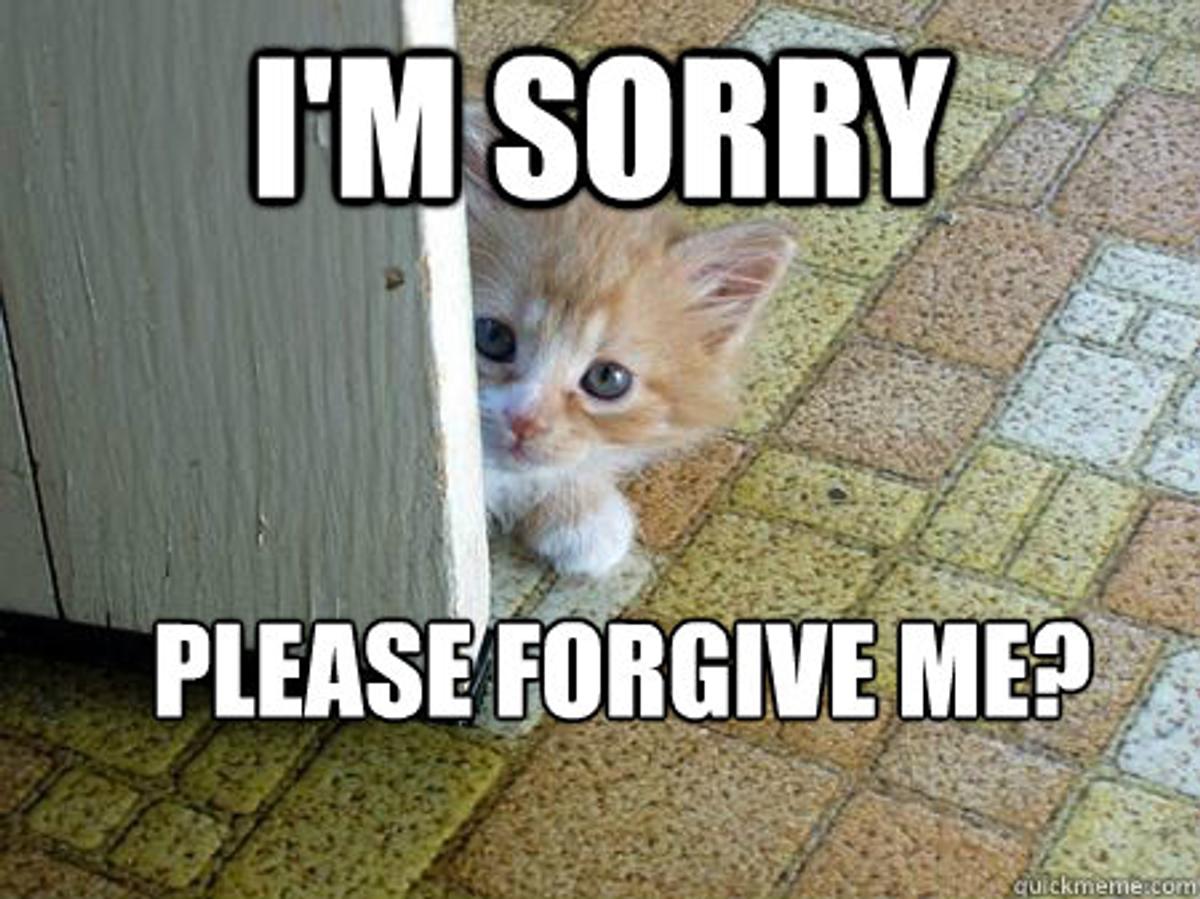Well with Alice
Wellbeing ABC

Well with Alice
Wellbeing ABC
The S is for... Sorry!
First of all, sorry that I have skipped some letters, I just wanted to make sure to finish the alphabet series this year so I have decided to skip O, P, Q and R! Some words that fit these letters are: Openness, Play, Rest and Resilience. I challenge you to find a Q word yourself, that's always a hard one!
Today I want to share a bit about apologising.
Why apologise?
Everybody makes mistakes and misunderstandings happen frequently as well. Even if you don't think that what you said or did was wrong, or maybe you even think that the other person is in the wrong, it is still important to apologise for your part in the conflict and the hurt you have caused others. This is especially important if you want to keep a friendship alive.
How to apologise
For an apology to be effective, it must be genuine: you must mean it. In a good apology, you take responsibility for your actions and acknowledge the hurt you have caused someone.
Authors Marjorie Ingall and Susan McCarthy outline 6 steps for a good apology:
How not to apologise
"I am sorry you feel that way"
Although this sentence has 'sorry' in it, it is far from an apology. If someone says this, they do not take responsibility of the hurt they have caused. They simply say, in a seemingly polite way: "I am right and you are wrong". It implies that the other person's feelings and response are wrong.
Contrast the above with "I am sorry I made you feel that way" to see the difference.
After an apology comes...
Listening and respecting the person you have apologised to! They may need some time to think it over and may not be quite ready to forgive and forget. They may have things they want to apologise for. They may have more hurts that you have not yet apologised for.
Give them an open ear and an open heart and know that you have taken your responsibility in apologising, the ball is now in their court.
Kind regards,
Ms. Alice Romijn
School Chaplain


Sources:
https://www.health.harvard.edu/blog/the-art-of-a-heartfelt-apology-2021041322366